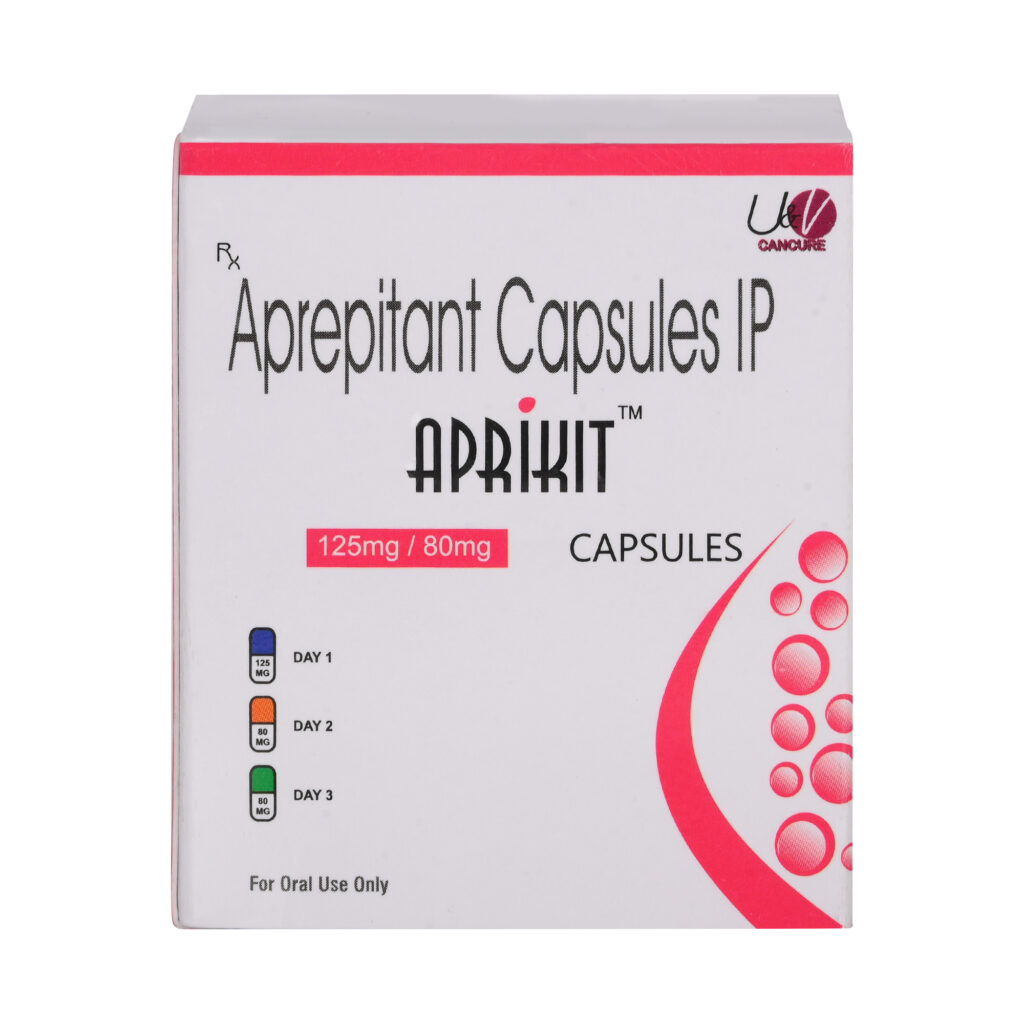
Phone Number
+91 99103-21199
Email Address
info1.unv@gmail.com
Our Location
Sector-10, Dwarka, Delhi

+91 99103-21199
info1.unv@gmail.com
Sector-10, Dwarka, Delhi

₹1,406.00 Original price was: ₹1,406.00.₹1,350.00Current price is: ₹1,350.00.
Aprepitant is an oral medication used to prevent nausea and vomiting caused by chemotherapy, especially highly emetogenic chemotherapy (HEC) regimens, and to prevent postoperative nausea and vomiting (PONV). It works by selectively inhibiting the substance P/neurokinin 1 (NK1) receptor, which is involved in the vomiting reflex. By blocking this receptor, aprepitant reduces the activity of the brain’s vomiting center, thus preventing nausea and vomiting.
Aprepitant is a selective antagonist of the neurokinin 1 (NK1) receptor. Substance P, a neuropeptide involved in the vomiting reflex, binds to the NK1 receptor in the brain, particularly in the area postrema, which triggers nausea and vomiting. Aprepitant blocks this receptor, preventing substance P from binding and activating the vomiting pathway. It is typically used in combination with other antiemetics (e.g., 5-HT3 antagonists and corticosteroids) for synergistic effects.
U & V Cancure Private Limited was established in 2009 and is located in Delhi, India. Mr. Ashok Kaushik, the Director of the company has 20+ years of rich pharmaceutical experience. He has worked with various top oncology companies before launching his wholly owned company in 2009.
Fill in the form with your inquiry and we’ll connect with you on call

Copyright © 2024. All rights reserved.
Developed by Corporate Soldiers
